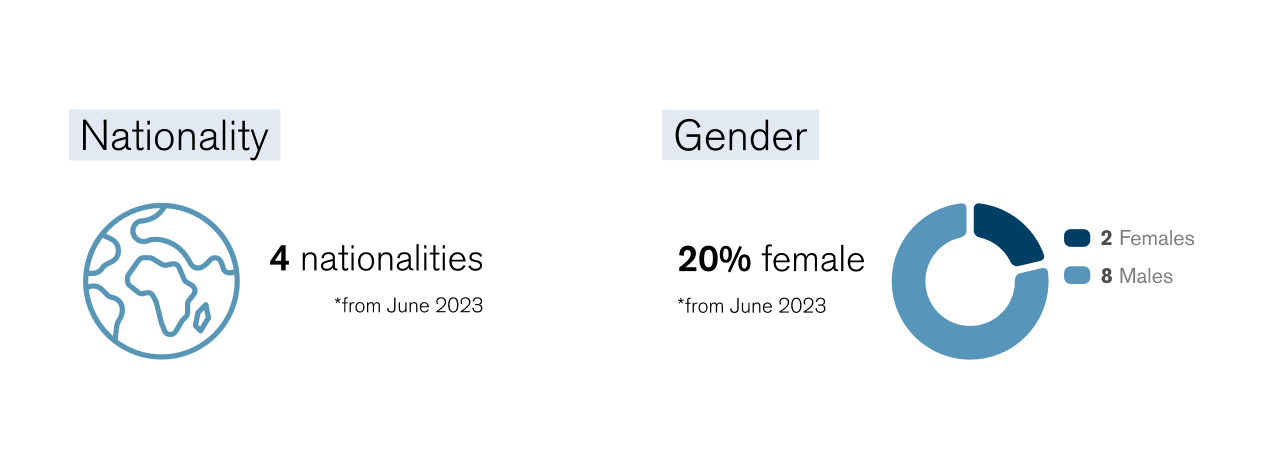

Corporate Governance
Corporate governance is an important fundamental for Nissan. In order to make it effective, Nissan also work on awareness-raising for employees and business partners to ensure that it permeates throughout the organization.
Governance structure
Nissan has selected a “company with three statutory committees” as its governance system, which clearly separates execution, supervision, and auditing. It ensures transparency in decision-making, prompt and flexible business execution.
Board of Directors
The Board of Directors led by independent outside directors, decides basic management policies by taking a variety of perspectives into account and plays the role of supervising the execution of duties by executive directors and other officers. A majority (six) of the ten members are independent outside directors, including the Chairman of the Board, creating an environment driven by independent outside directors. Each director has diversity in terms of nationality, gender, specialization or other traits, and Nissan aims to realize lively discussions and swift decision-making through their inclusion.



Nomination Committee
The Nomination Committee chaired by independent outside directors consists of five directors, four of whom are independent outside directors (of whom one is a woman). The committee has the authority to determine the content of the General meeting of shareholders’ agenda concerning the appointment and dismissal of directors. In addition, the committee has the authority to decide on the content of the Board of Directors’ meeting agenda concerning the appointment and dismissal of the representative executive officer and the authority to formulate an appropriate succession plan regarding the president and chief executive officer.

Compensation Committee
All four members of the Compensation Committee are independent outside directors (of whom one is a woman), including the chair. The Compensation Committee has the statutory authority to determine the policy of individual compensation of the company’s directors and executive officers and the contents of individual compensation for directors and executive officers.

Audit Committee
The Audit Committee chaired by independent outside directors consists of five directors, four of whom are independent outside directors (of whom one is a woman). As part of audits on business execution including the organization and operation of Nissan’s internal control systems, the Audit Committee receives reports from executive officers, corporate officers, and employees on their business execution for Nissan and its group companies, in accordance with the Audit Committee’s annual audit plan and on an ad-hoc basis as necessary.
Evaluation of effectiveness
The Company is conducting the “Board of Directors Effectiveness Evaluation” once a year, to enhance continuously the effectiveness of the board and its management environment. In order to ensure the transparency and objectivity of the evaluation, an evaluation by a third-party institution is conducted once every three years in accordance with internal rules.
Internal control
The internal control system that was established in 2007 is chaired by the CEO under the monitoring and supervision of the Board of Directors. All executive officers, corporate officers, and departments, as well as group companies, cooperate closely under the CEO to improve the internal control system.
Policies & Guidelines
Version 5: Updated in October 2023
This document provides an easy-to-understand summary of Nissan's corporate governance structure and initiatives.
Last Update: November 14, 2023
Revised on December 15, 2020
This document provides our basic policy on corporate governance.
Revised on June 29, 2020
This document outlines the requirements and categories for outside directors to qualify as an independent director of Nissan Motor Co., Ltd.






















